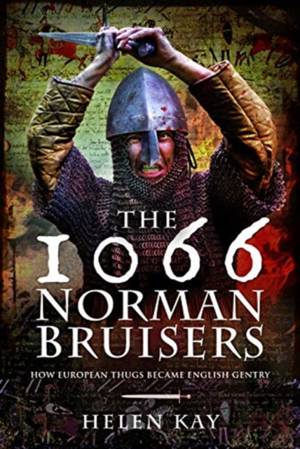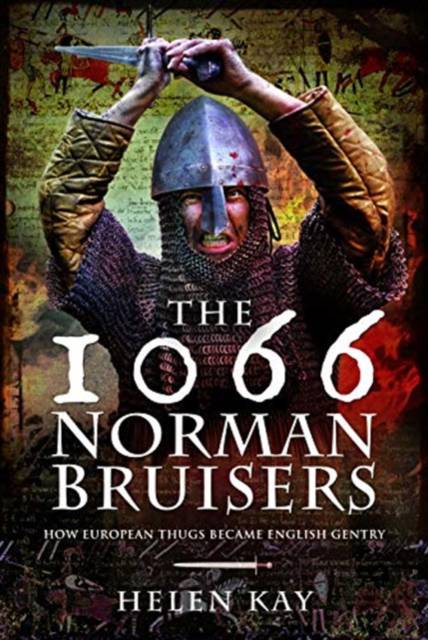
- Retrait gratuit dans votre magasin Club
- 7.000.000 titres dans notre catalogue
- Payer en toute sécurité
- Toujours un magasin près de chez vous
- Retrait gratuit dans votre magasin Club
- 7.000.000 titres dans notre catalogue
- Payer en toute sécurité
- Toujours un magasin près de chez vous
34,95 €
+ 69 points
Description
"...a great book, as it gives a different look at a well written about period of English history." - Medieval Sword School
The 1066 Norman Bruisers conjures up the vanished world of England in the late Middle Ages and casts light on one of the strangest quirks in the nation's history: how a bunch of European thugs became the quintessentially English gentry.
In 1066 go-getting young immigrant Osbern Fitz Tezzo crossed the Channel in William the Conqueror's army. Little did he know that it would take five years to vanquish the English, years in which the Normans suffered almost as much as the people they had set out to subdue. For the English, the Norman Conquest was an unmitigated disaster, killing thousands by the sword or starvation. But for Osbern and his compatriots, it brought territory and treasure - and a generational evolution they could never have imagined.
Osbern's descendants settled in Cheshire, which played a pivotal role in medieval England as the launch pad for Edward I's Welsh wars, the chief recruiting ground for royal armies and Richard II's regional powerhouse. Successive members of the Boydell family fought for monarchs and magnates, oversaw royal garrisons, traveled abroad as agents of the crown and helped to administer the laws of the land. When they weren't strutting across the stage of northwestern England, mingling with great men and participating in great events, they engaged in feuds, embarked on illicit love affairs and exerted their influence in the small corner of the country they had made their own. By 1378, when William Boydell died from wounds sustained in combat, the nation he defended was England and the enemy he opposed dwelled just forty miles from the place where Osbern had probably grown up.
The 1066 Norman Bruisers conjures up the vanished world of England in the late Middle Ages and casts light on one of the strangest quirks in the nation's history: how a bunch of European thugs became the quintessentially English gentry.
In 1066 go-getting young immigrant Osbern Fitz Tezzo crossed the Channel in William the Conqueror's army. Little did he know that it would take five years to vanquish the English, years in which the Normans suffered almost as much as the people they had set out to subdue. For the English, the Norman Conquest was an unmitigated disaster, killing thousands by the sword or starvation. But for Osbern and his compatriots, it brought territory and treasure - and a generational evolution they could never have imagined.
Osbern's descendants settled in Cheshire, which played a pivotal role in medieval England as the launch pad for Edward I's Welsh wars, the chief recruiting ground for royal armies and Richard II's regional powerhouse. Successive members of the Boydell family fought for monarchs and magnates, oversaw royal garrisons, traveled abroad as agents of the crown and helped to administer the laws of the land. When they weren't strutting across the stage of northwestern England, mingling with great men and participating in great events, they engaged in feuds, embarked on illicit love affairs and exerted their influence in the small corner of the country they had made their own. By 1378, when William Boydell died from wounds sustained in combat, the nation he defended was England and the enemy he opposed dwelled just forty miles from the place where Osbern had probably grown up.
Spécifications
Parties prenantes
- Auteur(s) :
- Editeur:
Contenu
- Nombre de pages :
- 272
- Langue:
- Anglais
Caractéristiques
- EAN:
- 9781526759382
- Date de parution :
- 26-04-20
- Format:
- Livre relié
- Format numérique:
- Genaaid
- Dimensions :
- 160 mm x 236 mm
- Poids :
- 748 g







